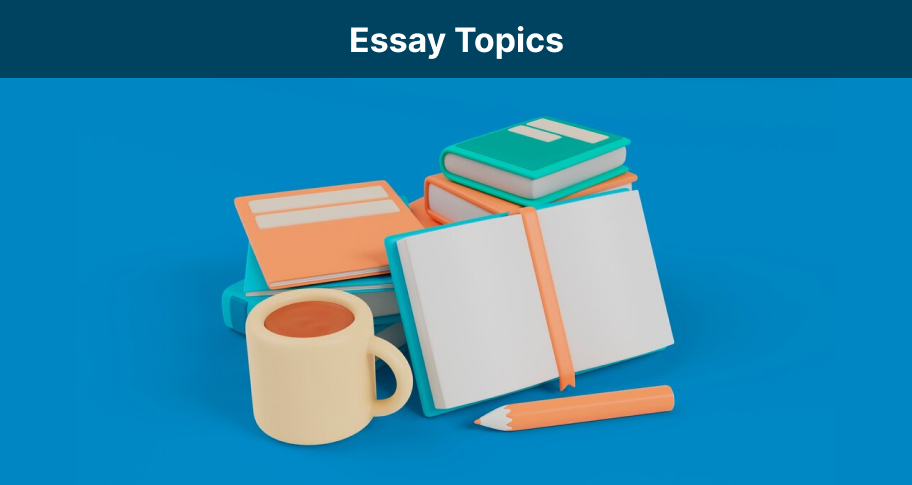Have you been asked to write a reflective essay but do not know where to begin? This article will help you understand what a reflective essay is and how to write one from start to finish. You will learn:
- The definition of a reflective essay
- How to choose the best topic for a reflective essay
- How to start writing a reflective essay
- The appropriate format for a reflective essay
- How to write a reflective essay outline
- How to perfect your reflective essay
Definition of Reflective Essay
All reflective essays share one thing in common: they do ask that you consider your personal thoughts, opinions, and experiences and apply those to the course you are taking.
View 120,000+ High Quality Essay Examples
Learn-by-example to improve your academic writing
A reflective essay is a relatively broad category of academic essay writing. There is no one correct type of reflective essay. In fact, you could be asked to write a reflective essay that is written in the first person or the third person.
Most reflective essays will be thesis-driven. Even though a reflective essay can seem less formal than other types of expository essays you are writing in class, a reflective essay is still considered a type of formal academic writing.
Therefore, do not consider a reflective essay assignment to be any easier or harder than any other. A reflective essay can be just as challenging to write as an analytical essay or a research paper.
First Person vs. Third Person
A first-person reflective essay seems less formal than a third-person reflective essay, but this does not mean that you can take it easy and write as if you are speaking to a friend.
You still need to write in formal academic terms, avoiding slang and remaining focused on the course material.
A first-person reflective essay could begin with questions like:
My personal experiences show that…
Based on the course readings, I now believe that…
My background and upbringing created worldviews and biases related to…
Incorporating what we have learned in this class, I feel better prepared to…
Now that I understand the concepts of ____, I will take the next steps in my research by…
Course readings like ___ substantiate my personal experiences because…
Third-person reflective essays seem more challenging at first because you are being asked to internalize what you have learned without speaking about yourself.
How do you do this? With practice and help from a good writing tutor. Begin by thinking about how you might translate what you are learning in class into writing a good expository essay. Take yourself out of it by considering how you might inform others of your learning.
A third-person reflective essay could begin with questions like:
Course readings can help inform public policy related to…
Professionals can apply the theories of ___ to improving…
Reflecting on these novels lends insight into…
Note that third person reflective essays tend to invoke the passive voice, which is often discouraged in academic writing.
If you are in doubt as to whether to write a reflective essay in the first person or third person, ask your instructor now.
Why Reflective Essays Are Important
Some reflective essays ask you to write about yourself in ways you might not be used to doing in formal exercises.
Instructors sometimes assign reflective essays at the beginning or end of a class.
Many admissions essays are reflective in nature.
Reasons for assigning reflective essays include:
- Wanting to learn about why you are taking this course.
- Wanting student feedback as to how the course could be improved.
- Wanting to ascertain how much you have learned.
- Seeing if you can apply the abstract academic readings to the real world.
- Admissions essays to college or university, or for a scholarship
Where to Begin?
The start of every good essay is a solid topic.
Generally you will have two choices:
- Write about a topic chosen for you, also known as the essay prompt.
- Write about any topic you choose that is related to course content.
To choose the best topic for your reflective essay, think about all you have gone over in your class.
Brainstorming ideas can also help. Some methods of brainstorming include:
- Talking with friends or classmates in your peer study group
- Writing ideas down on paper
- Listening to music and making a list
- Drawing and allowing your mind to free associate ideas
Any method you select for brainstorming will help you to narrow down the best topics for discussion.
Unlike most other academic essays, reflective essays do ask you to delve deep into your personal opinions and how they were formed.
You can relate stories from your childhood, which are typically omitted from formal expository essays.
Alternatively, you can talk about why you have certain ideas, thoughts, or opinions, and how the course material has changed you.
Reflective Essay Topics
To help you get started on choosing the best topics for a reflective essay, refer to this handy list.
Literature Topics
How do you relate personally to the character in a book? Do you have similar personalities but different experiences, or different personalities but similar experiences? If you were in that character’s shoes, how would you have handled their crises or challenges differently?
Do you agree or disagree with the author’s take on things? Why do you feel the way you do?
How does this book relate or compare with others you have read before, in this class or in others?
In what way do you believe culture or gender affected the themes or outcome of the novel? If the novel were set in a different historical period or different cultural context, what would change?
To what degree is the character a product of his or her culture, reflecting on your own personal experiences?
Art and Music Topics
How does this work of art or music make you feel, and why?
How does this work of art or music compare to others you have studied in this class or others, and why?
Reflect on the link between the artist’s biography and the canon of their work.
Political Science Topics
Reflect on the course readings, and offer your own insights into how they can be applied to public policy change.
How do your personal experiences corroborate what we have read in class regarding specific political issues? Do you agree or disagree with the author(s)?
Reflect on different ways this theory can be applied to different political situations.
Psychology Topics
Reflect on the efficacy of various therapeutic interventions in treating different psychological disorders.
Integrate what you have learned in this class with your personal experiences.
Reflect on the ways you can apply this theory to either a counseling or clinical setting.
In what ways has this theory or therapeutic intervention changed over time?
Nursing Topics
Reflect on your personal nursing philosophy and how it might impact your practice.
Reflect on how a nurse leader’s theoretical orientation impacts their management style and the organizational policies they pursue.
How has diversity within your organization impacted job satisfaction and/or patient perceptions of quality of care.
General Course Reflections
How have you changed since taking this course?
How will you apply what you have learned in this course to your personal or professional life?
Reflect on the reasons why you took this course, and how this course changes your outlooks and opinions.
Admissions Essays
Describe a turning point in your life, and how it shaped who you are today.
Describe a situation where you demonstrated leadership skills.
Reflect on the people who have shaped who you are today. How do you hope to be an inspiration to others?
View 120,000+ High Quality Essay Examples
Learn-by-example to improve your academic writing
Reflective Essay Outline
After you have come up with a suitable topic, you can start to compose an outline for your reflective essay.
Most formal outlines use the Roman numeral method of organizing your paper.
For example:
I. Introduction
A. Open with a strong anecdote or powerful statistic that leads into the main topic of discussion.
B. Briefly list the main topics you will cover in the reflective essay.
C. Thesis statement
II. Body Paragraph/Section One
A. Topic sentence: The main idea for this paragraph
B. Examples and reasons for your claim
C. Explanations and discussion
III. Body Paragraph/Section Two
A. Topic sentence: The main idea for this paragraph
B. Examples and reasons for your claim
C. Explanations and discussion
IV. Body Paragraph/Section Three
A. Topic sentence: The main idea for this paragraph
B. Examples and reasons for your claim
C. Explanations and discussion
V. Conclusion
A. Restate the thesis statement in different words, leading to a strong conclusion.
B. Leave the reader with a sense of closure, summing up what you have learned or the gist of the reflection.
After you create an outline, it will be easier to stay on track as you write. A good outline will give you confidence as you start writing the essay.
Reflective Essay Outline Example
The following is an example of a reflective essay that is written in the first person.
I. Introduction
A. Hook: My mother immigrated to the United States, arriving all by herself and knowing very little English.
B. My own personal experiences as a first-generation American in my family have shaped my own attitudes towards immigration.
C. Thesis: As we learned in course readings by Jones, Smith, and Wallabee, immigration experience blends the personal and the political.
II. Body Paragraph One
A. Topic Sentence: As Jones points out, immigration has a strong bearing on family unit cohesion.
B. My mother did not see her sister for over ten years after she immigrated.
C. Personal experiences and the readings point to the need for more compassionate immigration policy.
III. Body Paragraph Two
A. Topic Sentence: As Smith shows, immigration policy has at times been racially motivated.
B. Two years after my mother arrived, the United States changed their laws regarding immigration policies based on anti-immigrant rhetoric.
C. Course readings show why current immigration policy debates are also racially motivated.
IV. Body Paragraph Three
A. Topic Sentence: Although Wallabee is correct in saying that policy does need to reflect the prevailing interests of Americans, the author does not take into account the fact that the nation has always been comprised of immigrants.
B. With the exception of Native Americans, all of us came from somewhere else, creating the rich cultural tapestry of America.
C. Wallabee’s essay shows how Americans can be shockingly Euro-centric in their attitudes towards immigration.
V. Conclusion
A. Immigration is motivated by deep personal longing or needs, but is also subject to the prevailing political climate.
B. Immigration policy should take into account humanitarian ethics and ideals.
Tips for Writing a Reflective Paper
After you brainstorm and create an outline for your reflective essay, first create a rough draft.
At this stage, do not worry about grammar, punctuation, or anything technical like that. Just get your ideas on the page. It is better to refrain from self-censorship at this point.
After you write the rough draft, take a break. Go for a walk, eat dinner, or have coffee with a friend. Take your mind off the assignment so that you can return to it with fresh eyes.
When you do return to your rough draft, you can make necessary changes as needed. This is when you can clean up the grammar, polish your prose, or change the order of the thoughts or ideas.
Make sure you follow all the instructions! One of the most common mistakes students make is to rush into their assignments without reading the instructions carefully.
Avoid plagiarism—both intentional and unintentional—by citing each and every source you reference within the body of the paper and in the Bibliography, Works Cited, or References page. This is one of the most important tips for getting good grades: instructors use technological tools to detect plagiarism and you can and will get in trouble if you forget to cite your sources properly.
If you really want to improve your final draft, have a friend read your essay if possible, or take it to a writing tutor for advice.
Essay Introduction
A strong introduction makes a huge difference in how your essay is received.
There are several ways you can start your essay with a bang, including:
- Briefly relate a story from your personal experience that relates to the topic.
- Find a powerful statistic or fact, using an appropriate citation.
- Use a hypothetical illustrative example.
Reflective Writing Thesis Statement
A thesis statement helps you stay organized. In some cases, you will be required to provide a strong thesis statement in your reflective essay.
Thesis statements tell the reader what your essay is about, and quickly outlines the main points of discussion.
Examples of thesis statements for reflective essays:
The three main things I have learned in this class include…
Personal experience corroborates the course themes including…
The readings can be used to inform policies related to…
Personal hardships can be blessings in disguise, calling upon us to become stronger people more capable of helping others.
From my experience working with the homeless, I recognize that affordable housing and access to stable jobs are the most important initiatives for creating change.
Reflective Essay Format
Even when you use first person, your reflective essay should follow the standard formats used in academic writing. The most commonly used essay formats include APA, MLA, and Chicago style.
A reflective essay follows the format of a five-paragraph essay, which starts with an introduction, proceeds in an organized fashion through the essay body, and reaches a strong conclusion.
While you do not need to persuade your audience to take action or make a strong argument, you do need to remain focused and support your thesis with examples.
The body of a reflective essay will be comprised of a series of paragraphs that is purposefully organized, all of which have a topic sentence. Each of your paragraphs also relates to the thesis statement.
Make sure your paper follows the assignment instructions for essay formatting, including using appropriate line spacing (usually double-spaced), correct margins (usually one inch all around), page numbers, headers, or footers, a title page, and a bibliography, references, or works cited list.
If you are in doubt as to whether your reflective essay should be written in the first person or third person, always ask your instructor for clarification.
Reflective Paper Example
The following is an example of a reflective essay written in the third person. This will show you that a reflective essay does not need to be written in the first person.
The trajectory of a professional nursing career begins with effective education and mentoring. Course readings reveal the importance of strong nurse leadership both in healthcare administration but also in nursing education. Leadership styles like transformational leadership and servant leadership have been shown to be linked to employee motivation and job satisfaction, which can lead to reduced turnover and even to improved patient outcomes. In the realm of nurse education, visionary leadership may be more critical to long-term goals such as creating universal ethical norms for the healthcare profession. Ultimately, the goal of a nurse leader should be to improve healthcare policy and advocate on behalf of patients.
Course readings in leadership show how some types of leadership styles like transformational leadership improve employee satisfaction. Transformational leadership empowers members of the team, encourages intrinsic motivation, and promotes a high sense of job satisfaction among nurses. The readings by Jones, Smith, and Arlington in the course reader all pertain to the ways transformational leadership can enhance organizational performance and help healthcare institutions meet their core objectives.
Servant leadership is another style of leadership similar to transformational leadership in that it empowers others and creates a supportive and collaborative environment. What sets servant leadership apart is that it is driven more by ethics and values. Most nurses will have had at some point a leader who embodies the principles of servant leadership, primarily because the nursing profession is guided by principles of caring and compassion. This course has shown how and why servant leadership promotes healthcare values, and can be an integral part of any institution’s human resources strategy. It is important that nurse leaders cultivate servant leadership models, even if they are orientated towards a different type of leadership style based on traits or personal preferences.
All nurses start out with education and training, which establishes the foundation of their careers. In this course, readings support what most nurses know intuitively: strong leadership from educators creates strong nursing ethics. However, visionary leadership might be even more important for nurse educators than it is for nurse administrators. Visionary leadership might also be more efficacious than either servant leadership or transformational leadership because a nurse educator is partly in charge of the curriculum and pedagogical methods. Visionary nurse leaders have the potential to see and convey big picture ideas in nursing, helping their students to become the most effective nurse leaders of the future.
All nursing careers begin with education and ultimately move towards patient advocacy. Whether nurses remain in one-on-one patient practice throughout their careers, move into leadership roles in healthcare organizations, or become nurse educators, they need to understand which leadership styles are most effective in meeting their goals and objectives. Servant leadership is ideal for nurse leaders in organizations, helping to embed ethics and values into the organizational culture, policies, and procedures. Transformational leadership is helpful for motivating employees, reducing burnout, and reducing turnover. Finally, visionary leadership helps nurse educators to inspire paradigm changes. This course has illustrated the importance of all three of these models of nurse leadership.
Conclusion
A reflective essay is an opportunity for you to apply what you have learned in a course based on your past experiences or future goals. You can also write a reflective essay based on your understanding of course materials or concepts. Reflective essays are often used for admissions to colleges and universities, which means you have probably already written one, whether you know it or not.
Reflecting on course concepts and readings means you are thinking critically and creatively, and are internalizing your learning. In essence, a reflective essay illuminates the goals of your education. If you need further assistance with your reflective essay, sign up for a trial of our service which gives you access to example documents, outlines, writing guides, writing tools, and more.





